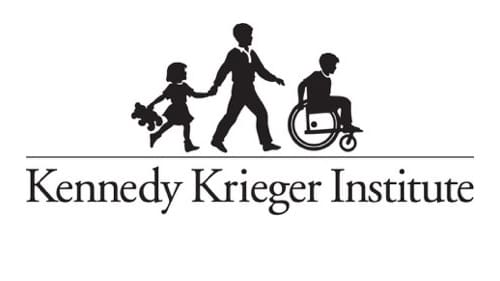
Dr. Jacqueline Harris Seeks to Develop a Neurocognitive and Neurobehavioral Assessment Tool for Use in Future Clinical Trials
Dr. Jacqueline Harris, a pediatric neurologist and director of Kennedy Krieger’s Epigenetics Clinic, received a $125,000 grant from the Kabuki Syndrome Foundation (KSF) for her research efforts into the cause and treatment of Kabuki syndrome, a rare neurological disorder.
The two-year grant supports Dr. Harris’ work to develop and test a neurocognitive and neurobehavioral assessment tool that will be an essential part of setting up effective clinical trials for Kabuki syndrome therapies.
Kabuki syndrome is a rare genetic disorder with a broad spectrum of symptoms including intellectual disabilities, immune deficiencies, cardiac and kidney abnormalities, and growth and bone disorders. The incidence of Kabuki syndrome is estimated to be at least one in 32,000 births in the general population.
Patients with Kabuki syndrome also often have deficits in visuospatial reasoning and memory, in addition to severe anxiety. Early research efforts indicate that abnormalities in the brain may cause deficits to visuospatial function. However, more research is needed to understand why individuals with Kabuki syndrome exhibit severe anxiety.
Currently there are no syndrome-specific treatments or a cure for Kabuki syndrome.
“This generous grant from KSF will allow us to significantly accelerate the development of Kabuki syndrome-specific outcome measures for all age groups and both types of Kabuki syndrome,” Dr. Harris said. “The tools will include cognitive, electrophysiologic, neurobehavioral, and molecular assessments. This generosity and collaboration is one of the reasons I am so honored and pleased to work with the Kabuki Syndrome Foundation. They help us learn how to best serve the phenomenal families we serve here at Kennedy Krieger who are affected by Kabuki syndrome.”
Dr. Harris said the grant also allows her team to hire more staff members to focus on Kabuki syndrome research and to lead cross-institutional collaborations.
The Kabuki Syndrome Foundation was established in 2017 and is a U.S.-based nonprofit organization dedicated to accelerating research efforts that show promise to treat, prevent, or cure Kabuki syndrome.
“Dr. Harris’ expertise in neurodevelopmental disabilities make her a well-positioned member of the Kabuki syndrome research community to develop clinically relevant outcome measures that can be used across institutions and in future clinical trials for Kabuki syndrome,” said Janet Lee, KSF’s executive director.
About Kennedy Krieger Institute:
Kennedy Krieger Institute, an internationally known nonprofit organization located in the greater Baltimore-Washington, D.C., region, transforms the lives of more than 25,000 individuals a year through inpatient and outpatient medical, behavioral health and wellness therapies; home and community services; school-based programs; training and education for professionals; and advocacy. Kennedy Krieger provides a wide range of services for children, adolescents and adults with diseases, disorders and injuries that impact the nervous system, ranging from mild to severe. The Institute is home to a team of investigators who contribute to the understanding of how disorders develop, while at the same time pioneering new interventions and methods of early diagnosis, prevention and treatment. Visit KennedyKrieger.org for more information about Kennedy Krieger.











